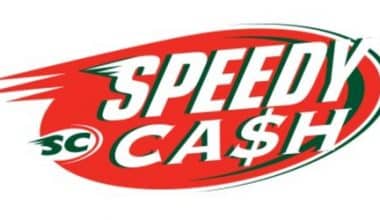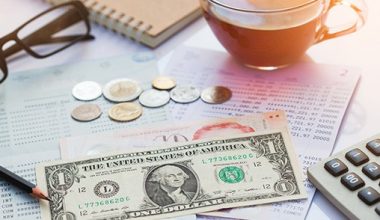Having an adequate intelligence of the meaning and importance of liquid assets is a critical component of maintaining a healthy financial profile. Although, you can’t always predict adversity, such as losing a job or contracting a crippling sickness, having cash on hand in the event of a financial crisis can make getting through it a little easier and will provide you with some peace of mind.
Hence, in this article, we meticulously explained the meaning of liquidity using a stock asset as one of the examples of liquid assets to help you better understand and improve your financial profile.
Liquid Assets, Meaning and Examples
The meaning of liquid assets is cash on hand or an asset that can quickly transform into cash and at a reasonable cost. In other words, a liquid asset can sell swiftly on the market without suffering a major loss in value.
In the same meaning, liquid assets are typically traded on active markets with a significant number of buyers and sellers. The high number of market players, combined with large trading volumes, ensures that assets are quickly sold without considerably losing value.
The phrase liquidity relates to the frequency with which financial security changes hands. A big stock, like Microsoft, is a liquid asset. Almost every stock investor is aware of it, and multitudinous individuals and institutions are waiting for an opportunity to purchase or sell the stock at any particular time. As a result, Microsoft shares trade often and in big quantities.
Speaking of which, is stock a liquid asset? Stocks are a relatively liquid asset class. The stock markets make it possible to buy and sell stocks at transparent prices. Investing in a liquid asset, such as a stock, necessitates the use of a broker.
However, for a stock to be called a liquid asset, it must involve a third party buyer. Even equities that are widely traded are far easier to sell than stocks that few people want to buy. As a result, some stock is significantly more of a liquid asset than others.
Examples Of Liquid Assets
Cash, money market funds, and shares of public corporations that trade on an active stock exchange are examples of liquid assets. Also, checking and savings accounts, stocks, bonds, mutual funds, and ETFs are all examples of liquid assets.
Stocks and bonds, on the other hand, can easily transform into cash. They are typically referred to as liquid assets since they are relatively easy to convert to cash. Perhaps, if you don’t have an emergency fund, you should probably start one before putting your money toward retirement or other goals.
Conversely, it’s also useful to understand with examples assets that aren’t liquid. In general, anything that would take a long time to convert to cash or that would lose value in the process is called illiquid. Here are several examples:
- Property investment
- Jewellery and automobiles are examples of valuable items.
Something to bear in mind: liquidity isn’t always a black-and-white definition; it’s more of a scale. Cash is highly liquid because it is already in its most liquid form and does not need to be converted, whereas money in stocks is slightly less liquid because converting it to cash involves more steps.
Importance of Liquid Assets
In the business world, liquidity is one of the most important factors determining success. The Meaning is that liquid assets ensure a company’s ability to meet its immediate financial obligations and operating expenses. Furthermore, liquid assets safeguard the company from unforeseen bad occurrences such as a recession or a sudden drop in demand for the company’s products or services. Finally, their presence directly improves the company’s ability to raise additional capital.
Liquid assets are also important in personal finance. In reality, such assets should not be put aside from a personal investment portfolio. Liquid assets in personal finance, like in business applications, are used to meet financial obligations as soon as possible. They are also used to protect a personal investment position from sudden negative events.
What Is a Liquidity Event?
This is a process by which an investor sells their stake in a private firm and exchanges it for cash. The primary goal of a liquidity event, therefore, is to convert an illiquid asset (a private company investment) into the most liquid asset — cash.
Furthermore, liquidity events are a type of exit strategy which private equity firms use. Typically, the event is meticulously prepared long before it occurs. It is usually ready when firms meet certain conditions or specific events. The key participants in the event are the company’s founders and investors.
Reasons For Liquidity Event
A liquidity event can occur for a variety of reasons, including:
- The profit target has been met.
- Loss avoidance
- For legal grounds
- Market conditions have shifted dramatically.
Forms of Liquidity Event
#1. Direct Purchase
Rather than going public, the company or a portion in the company can be sold straight to a buyer (e.g., private equity firm). This is yet another way to recoup an original investment.
#2. Initial Public Offering (IPO)
Following an IPO, the company’s shares become publicly traded. The founders and investors of the company may sell their shares and recoup their initial capital.
What Is Idle Cash?
Idle cash as the term betokens is cash that is sitting idle or does not in a way raise the value of a business. Further, it indicates that the money isn’t earning interest by sitting in a savings or checking account, and it’s not making money through asset purchases or investments.
The money is merely sitting in a form that does not appreciate. In reality, the real-adjusted returns on idle cash may be negative due to inflation. In other words, not only does idle cash not appreciate, it might actually lose value owing to inflation.
Cost of Idle Cash
As previously stated, idle cash frequently earns zero or negative value. Consider the case of $500 in cash stored in a safe. This money is not growing like it would in a savings account. Assume that the owner of this cash might have put it at a bank in a 5% per year savings account. Again, that deposit could have earned an extra $5 over the course of a year.
Instead, the $500 money is locked away in a safe, collecting no interest. In terms of absolute worth, the owner has created none. In terms of potential cost, the owner has actually lost $5 in value.
Secondly, inflation causes the negative value of idle cash. Assume the owner of this $500 could have purchased 50 tennis balls a year ago. Because of the increased cost of raw materials, the same amount of tennis balls will cost him $504 this year. So he not only lost the $5 he could have gotten from a savings account, but he also lost $4 in purchasing power, for a net loss of $9. This is the disadvantage of having excess cash.
How to Make Quick and Swift Money
There are other ways in which you can upgrade your financial profile and survive a financial crisis when it hits eventually you. Here are 6 ways you can make quick money:
Read Also…101 Best Business Ideas in 2023
#1. Take Online surveys
This might not pay much, but they are free, quick, and easy. There are numerous survey websites on the internet, and you may join up for several of them if you want to make more money. However, be certain that the survey sites are legitimate first.
Spend a few minutes taking surveys whenever you sit down to look through your social media page. These surveys are only a few minutes long, and after you complete them, you will be rewarded with a few dollars. Depending on the site, you could earn up to $5 for completing a single survey. A few dollars may not seem like much, but if you perform multiple surveys per day, it may quickly add up.
#2. Rent A Room On Airbnb
Airbnb allows you to rent out rooms in your house to travellers. Surely, you can make a lot of money doing this if you live in a popular tourist area. The finest aspect is that you are not to do anything.
You can even rent out your entire house if you’re going to be out of town for a few days. This can earn you an extra $100 or more per night.
#3. Start Walking Dogs
Numerous networks connect dog walkers with owners who require their services. These people may be at work all day, have a hectic schedule, or be out of town and unable to walk their dogs.
If you have no prior experience, this may be difficult at first. However, if you are true to your profession and do a good job, you can make a solid living by taking walks.
#4. Open a Cash-Bonus Account
Many banks provide cash bonuses in exchange for opening a checking or savings account with them. Although this cash incentive is not large, it can provide you with up to $100 or $150. If you’re out on cash and need anything extra for an emergency, this can make a big difference.
You must deposit a specified amount of money into your new account to receive this cash bonus. This can be the most difficult aspect. Nevertheless, talk to your bank and ask lots of questions. Some banks do not need any form of deposit at all.
#5. Get Your Vehicle Encased
Many businesses will pay you to convert your car into a moving billboard. You will incur no additional costs as a result of this. All you need is a clean driving record and a vehicle that isn’t too old.
You may not be eligible for a car wrap until you drive for a particular amount of time. Still, if you currently spend a lot of time in your vehicle, you can earn a substantial sum of money each month.
#6. Become an Uber Driver
Lastly, if you own a car, for instance, you can work as a driver for ridesharing businesses such as Lyft or Uber. keep in mind though, that you must have a clean driving record, and your vehicle must be in good condition.
Nevertheless, if you download the app and sign up to be a driver, you will be able to set your work schedule. That implies that if you have some spare time, you may jump in your car and start driving customers about right immediately.
Is a 401k a liquid asset?
Prior to reaching retirement age, 401(k) investments are not considered liquid assets. The IRS will charge you income tax on the 401(k) withdrawal if you are under the age of 59 12 and an extra 10% early withdrawal penalty. A 401(k) is rendered non-liquid by the 10% penalty.
Why are assets called liquid?
Assets that can be quickly converted into cash are known as liquid assets. Despite the fact that assets are priceless items that may be sold for cash, not all of your assets can be sold for cash right once or without incurring a loss.
Is your mortgage a liquid asset?
An asset that can be quickly and readily converted into cash is referred to as a liquid asset. Illiquid assets take longer to sell, could fetch less money when they do, and require longer to turn into cash. A home is a liquid asset, right? The answer is that a house and other real properties are not regarded as liquid assets.
What are not liquid assets?
Non-liquid assets are those that are difficult to sell or easily convert to cash without suffering a large loss on investment. These assets include things like homes, automobiles, land, televisions, and jewelry.
Is gold a liquid asset?
The ability to quickly convert gold into cash makes it a liquid asset, so the answer is yes. Gold is a liquid asset since there are always a lot of buyers because of its strong demand. Stocks: Are they liquid assets? Yes, since stocks may be quickly turned into cash, they are liquid assets.
Conclusion
This article highlights the importance and meaning of liquid assets with clear examples to distinguish between non-liquid assets. Hopefully, it will provide you with the knowledge you seek.
Related Articles
- What Are SHORT-TERM INVESTMENTS: Definition, Examples, and Banks
- Liquidity Ratio: Types, Formulas and Calculations
- Best business ideas to make money right away: 40+ ideas and business plans
- Small profitable business ideas 2023 (+ free quick tools)
- Soap Brands: The Best Bar, Dish, Men’s, and Mild Soap Brands.
FAQs On Liquid Assets
What is not a Liquid Asset?
Non-liquid assets are assets that don’t convert into cash easily without a significant loss of investment. Some examples of such assets include houses, cars, land, televisions and jewellery.
Is Inventory a Liquid Asset?
Aside from cash, liquid assets include items like investments, as well as accounts receivable and inventory.
Can a House Be a Liquid Asset?
Real estate isn’t considered liquid, so any investment properties you own aren’t liquid assets. Selling a property can take a long time, and you might not necessarily get its market value back when you sell it – especially if you’re trying to do so quickly
What is the Difference Between Liquid and Current Assets?
Your current assets are short-term investments because you use or convert them into cash within one year. … Liquid assets are assets that you can quickly turn into cash (e.g., stocks). Liquid assets are more liquid than current assets.
Is Gold a Liquid Asset?
Gold is a highly liquid yet scarce asset, and it is no one’s liability. It is bought as a luxury good as much as an investment.
{
“@context”: “https://schema.org”,
“@type”: “FAQPage”,
“mainEntity”: [
{
“@type”: “Question”,
“name”: “What is not a Liquid Asset?”,
“acceptedAnswer”: {
“@type”: “Answer”,
“text”: “
Non-liquid assets are assets that don’t convert into cash easily without a significant loss of investment. Some examples of such assets include houses, cars, land, televisions and jewellery.
“
}
}
, {
“@type”: “Question”,
“name”: “Is Inventory a Liquid Asset?”,
“acceptedAnswer”: {
“@type”: “Answer”,
“text”: “
Aside from cash, liquid assets include items like investments, as well as accounts receivable and inventory.
“
}
}
, {
“@type”: “Question”,
“name”: “Can a House Be a Liquid Asset?”,
“acceptedAnswer”: {
“@type”: “Answer”,
“text”: “
Real estate isn’t considered liquid, so any investment properties you own aren’t liquid assets. Selling a property can take a long time, and you might not necessarily get its market value back when you sell it – especially if you’re trying to do so quickly
“
}
}
, {
“@type”: “Question”,
“name”: “What is the Difference Between Liquid and Current Assets?”,
“acceptedAnswer”: {
“@type”: “Answer”,
“text”: “
Your current assets are short-term investments because you use or convert them into cash within one year. … Liquid assets are assets that you can quickly turn into cash (e.g., stocks). Liquid assets are more liquid than current assets.
“
}
}
, {
“@type”: “Question”,
“name”: “Is Gold a Liquid Asset?”,
“acceptedAnswer”: {
“@type”: “Answer”,
“text”: “
Gold is a highly liquid yet scarce asset, and it is no one’s liability. It is bought as a luxury good as much as an investment.
“
}
}
]
}






